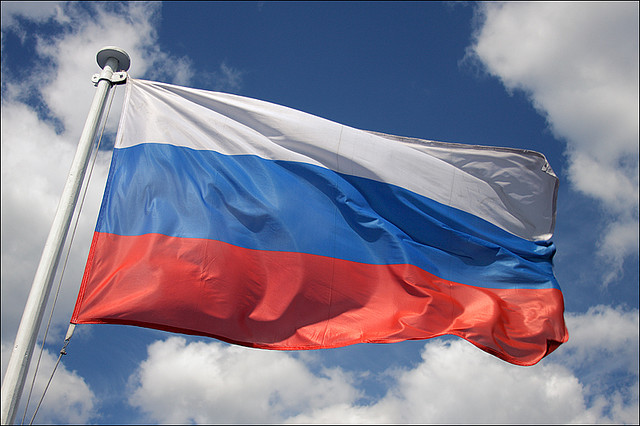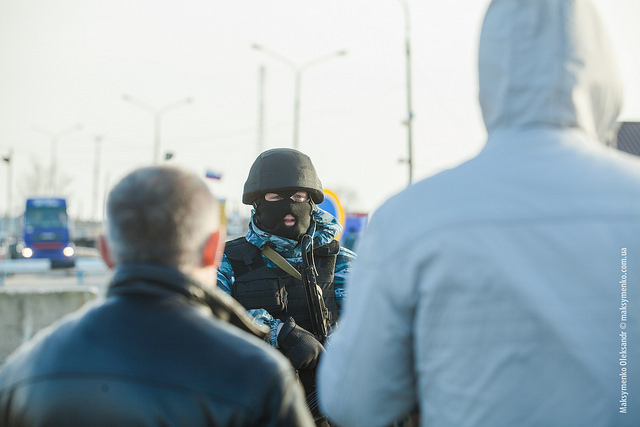From the Editorial staff:
Finding Russian-Americans willing to comment on the crisis in Crimea proved to be more difficult that we originally thought. The editorial team at L&P envisioned setting up a debate style question with two differing opinions. One of our potential writers wasn’t available to comment and when she approached her family members with the opportunity they expressed that it was too much of a hot button topic and, therefore, did not want to touch the issue.
We did find one Russian immigrant willing to speak out about the recent vote in Crimea. We believe Tatiana’s comments are enlightening because they don’t necessarily reflect the views of many people in the West and she sheds light on the way that many Russians feel about the Crimean peninsula and it’s relationship to Russia.
We posed this question: “Crimea has a right to secede from Ukraine.” Agree or Disagree and why.
From Tatiana:
“At this time, the celebrations among (the) Russian-speaking population in Crimea have subsided and the real question is about the transitioning to the Russian Federation, currency, political structures, pensions, etc. There is no doubt in my mind that Crimea belongs to Russia. The separation of Crimea was artificial and happened because of the stupid games played by the leader of the Soviet Union, Nikita Kruschev in 1954. He decided unilaterally to gift Crimea to Ukraine… never asked Crimean population if they really wanted to be “gifted.”
But why now? Why is it so important for Crimean Russia to return to Russia right now? The answer is simple. Look at the new Ukrainian government, installed after the riots that were supported by the Western money and politicians. The first law enacted by the new Ukrainian government was to ban Russian language from all the official TV channels, universities, and institutions. This decision was the final drop for Crimean population that was not allowed to speak their only language they know. Banned language also meant banning the culture, values, and self-identity. The fears of being persecuted were well-founded. Although the law banning Russian language was swiftly abandoned after a week, Russians in Crimea knew that the open manifestation of the hatred toward Russia would change their way of life.
And finally, look at the support and the voting process – it was democratic, representative, and people actually came in great numbers to vote to join Russia again. And again, to answer your question, I do support Crimea joining Russia and hope that false propaganda portraying “annexation” of Crimea would stop instilling fear of the new war or a cold war among European nations and also among Americans.”
Crimea became part of the former Soviet republic of Ukraine (now an independent country) in 1954 when Nikita Khrushchev ‘gave’ it to the region. When Ukraine, which has a separate culture and language from Russia, became an independent country in the early ‘90s, Crimea remained part of it. The international community, including Russia, agreed on this arrangement despite the fact that the majority population in Crimea are ethnic Russians and Russian-speaking. Politifact has some helpful historical background for those who want more detail.
Given this background we think it’s reasonable that many in Crimea may want to be part of Russia instead of Ukraine. The language and ethnic differences notwithstanding, Ukraine has obviously seen a great deal of unrest and Russia probably appears more stable to citizens who don’t feel an allegiance to Ukraine. Certainly there is plenty of modern precedent for redrawing maps. Right now there is a referendum scheduled for September in Scotland with the real possibility of Scottish independence from the UK. The difference between the Scottish vote and Crimea is that in Scotland the referendum has been in the works for years, not merely a few weeks.
Some of the concerns of the Obama administration and many NATO allies are, of course, self-serving. That’s what governments do. But, there are also reasonable concerns about a lack of a transparent and democratic process when Crimeans recently voted to secede from Ukraine and join Russia. Among those concerns are:
1) The vote did not include the option to stay with Ukraine. Crimeans could only vote to become independent (pretty daunting) or join Russia. So, really, they had one choice.
2) The vote was hastily arranged. International observers were not allowed to participate in the process and there was a sense that this was being orchestrated from Moscow.
3) The large Tatar minority was not given much of a voice and many dissenting groups boycotted the vote.
Following the vote to join Russia, Putin’s government has agreed to allow international monitors to observe the transition. We can only hope that this serves to de-escalate the stand off between Russia and the West. If Putin stays true to his word and does not attempt to annex other regions of the former Soviet Union and keeps his promise to protect the Tatar minority in Crimea, then there is a chance that current tensions may cool down over time.
We thank Tatiana for being willing to share her views and remind us that there are always several sides to the story. She is a neuropsychologist who immigrated to the U.S. from the Russian Far East in 2000. She’s lived in Moscow and visited Ukraine multiple times, including Crimea.



4 comments
Thanks , I have recently been searching for info about this topic for ages and yours is the greatest I have found out till now. However, what about the conclusion? Are you positive in regards to the source?
Maybe if the MSM started reporting the truth about world events, people will see things in a different light. I sure hope so ,before the whole world explodes.
Excellent, I am with you, 100%, Tatiana.
The whole mess was staged by NATO forces, lead in part by John McCain, and Victoria Nuland.